Supportive sports programs offer you a safe path to mental wellness through modified team activities. You’ll find specialized equipment and adaptations that accommodate all ability levels, focusing on your capabilities rather than limitations. These trauma-informed programs build community, with 52% of participants reporting improved mental health outcomes. Through activities like mountain biking and kayaking, you’ll discover mindfulness in motion that reduces anxiety. The transformation stories from fellow warriors reveal the healing power of athletic engagement.
Creating Safe Spaces: Modified Team Sports for Mental Health Warriors
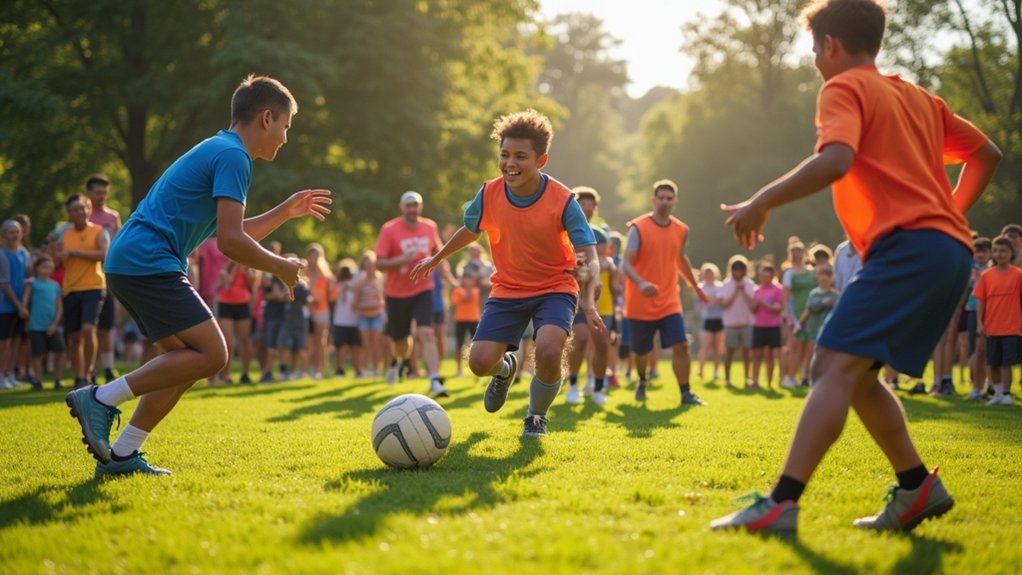
While veterans face unique mental health challenges upon returning from service, modified team sports have emerged as powerful tools for recovery and reintegration.
The WWP programs recognize that warriors of all ability levels deserve opportunities to heal through movement.
You’ll find these adaptive sports programs specifically designed to accommodate your individual capabilities, creating environments where you can focus on what you can do rather than limitations.
These safe spaces promote both physical and mental well-being simultaneously.
Equipment and Adaptations for Inclusive Participation
Access to specialized equipment forms the backbone of successful adaptive sports participation for veterans facing physical challenges.
You’ll find that the Department of Veterans Affairs offers equipment eligibility programs, ensuring you have the necessary tools to engage in physical activity regardless of your specific needs.
The Wounded Warrior Project’s Adaptive Sports program provides modifications tailored to your individual abilities, whether you’re living with limb amputation or spinal cord injuries.
Their specialized clinics accommodate all skill levels, helping warriors develop confidence while participating in team-based activities.
Beyond physical benefits, these adaptive sports greatly improve mental well-being.
When you’re connected with experienced adaptive athletes and local resources, you’ll build self-esteem and reduce stress through meaningful participation in a supportive community designed for your success.
Building Community Through Trauma-Informed Athletic Programs
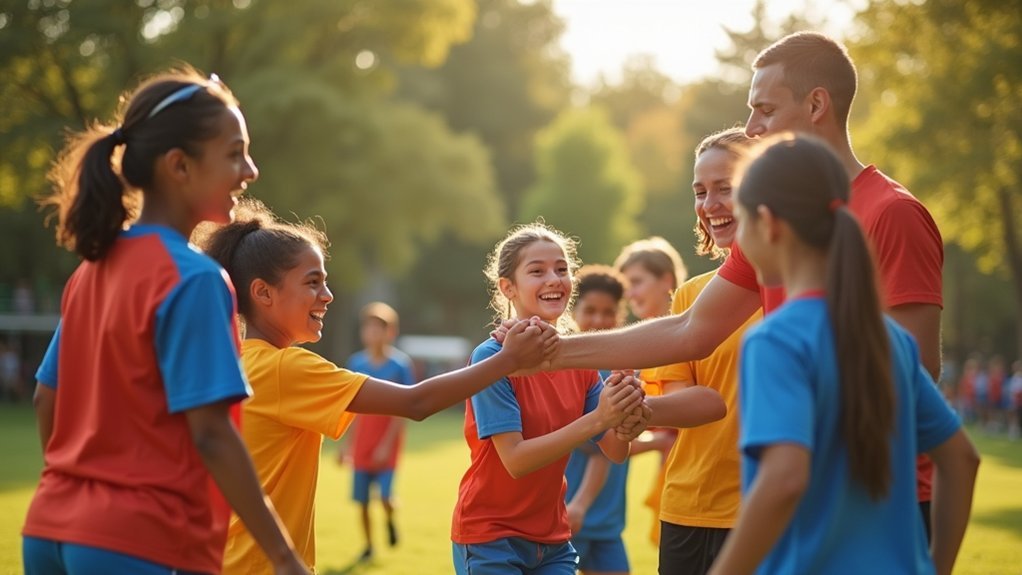
Trauma-informed athletic programs serve as powerful community builders for veterans navigating post-service challenges. When you participate in programs like those offered by the Wounded Warrior Project, you’re not just improving your physical fitness—you’re joining a supportive network that understands your journey.
- Connect with fellow warriors who share similar experiences, reducing isolation and depression.
- Experience the mental health benefits of physical activity, with 52% of participants reporting improved well-being.
- Engage in nature-based activities that promote mindfulness and emotional healing.
- Reduce suicidal thoughts through team sports that create meaningful social bonds.
- Regain purpose through personalized support that empowers your shift to civilian life.
These community-centered athletic programs create safe spaces where your experiences are acknowledged and your recovery is supported by those who understand.
Mindfulness in Motion: Athletic Activities That Reduce Anxiety
Finding internal calm through physical movement offers veterans a powerful pathway to managing anxiety. As a warrior or service member, you’ll discover that outdoor activities naturally promote mindfulness while improving your mental health. The 2022 Warrior Survey revealed 74% of veterans experience depression, but physical engagement can transform this reality.
| Activity | Mental Health Benefit |
|---|---|
| Mountain biking | Reduces anxiety through focused attention |
| Kayaking | Creates flow state, disconnecting from stressors |
| Adaptive sporting | Builds confidence while decreasing depression |
| Rock climbing | Enhances mindfulness through deliberate movement |
| Surfing | Promotes emotional healing through nature immersion |
When you participate in these activities, you’re joining the 52% of warriors who report improved mental health through physical programs. These nature-based experiences provide practical tools for managing anxiety while rebuilding your sense of capability.
Success Stories: How Adaptive Sports Transform Mental Health Journeys
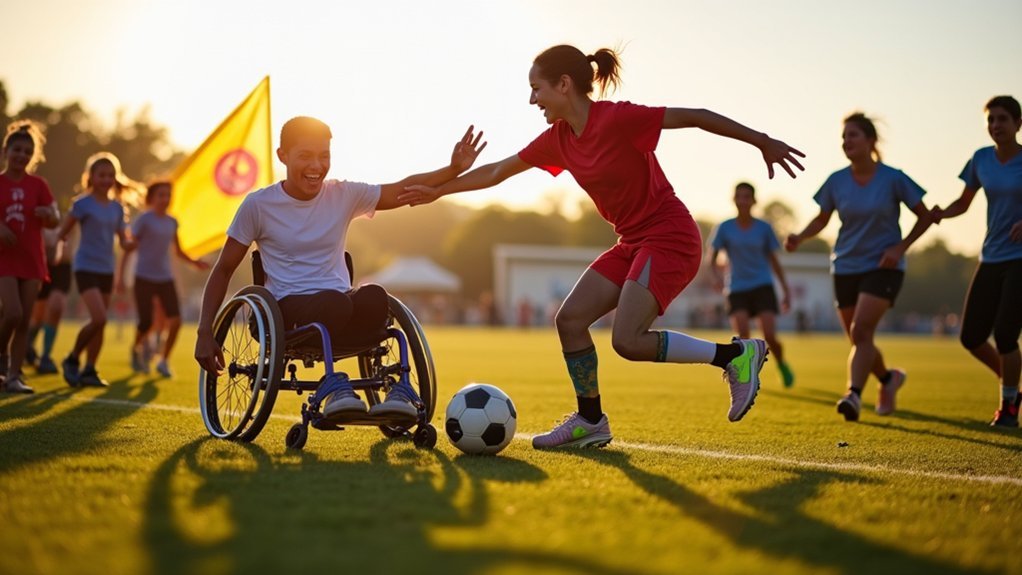
Warriors who once believed recovery was impossible now celebrate remarkable transformations through adaptive sports programs. The 2022 Annual Warrior Survey revealed that 52% of participants experienced improved mental health outcomes through these specialized athletic opportunities.
You’ll discover that these programs don’t just rebuild physical strength—they forge resilient minds and supportive communities.
- Feel the rush of achievement when you conquer a modified sport you thought beyond reach
- Experience the 30% reduction in anxiety symptoms reported by warrior participants
- Connect with fellow veterans who understand your unique challenges
- Witness your self-esteem flourish as you master new adaptive skills
- Become part of a community that celebrates every victory, no matter how small
Frequently Asked Questions
What Sports Are Best for Mental Health?
You’ll benefit most from cycling, skiing, and team sports like wheelchair basketball. Don’t overlook nature-based activities, equine therapy, and water sports—they’re all proven to reduce depression and build camaraderie.
What Is the Military Adaptive Sports Program?
The Military Adaptive Sports Program helps you recover from physical injuries through modified sports activities. You’ll participate in athletics tailored to your abilities while connecting with fellow veterans, improving both your physical fitness and mental wellbeing.
How Much Does a Physical Health and Wellness Coach Make at the Wounded Warrior Project?
As a physical health and wellness coach at Wounded Warrior Project, you’ll typically earn between $40,000-$70,000 annually. Your exact salary depends on your experience, location, and certifications in health and wellness.
What Resources Are There for Veterans Struggling With Their Mental Health?
You’ll find extensive resources through Wounded Warrior Project, including their Warrior Care Network, adaptive sports programs, physical health initiatives, and Independence Program. VA hospitals, veteran crisis lines, and peer support groups are also available.
In Summary
You’ve seen how supportive sports programs can transform mental health journeys. By participating in these adapted activities, you’re not just improving your physical health—you’re building resilience, community, and self-confidence. Remember, whether it’s mindfulness in motion or modified team sports, you don’t need to face your challenges alone. Take that first step onto the field, court, or track. Your wellness journey deserves this powerful ally.


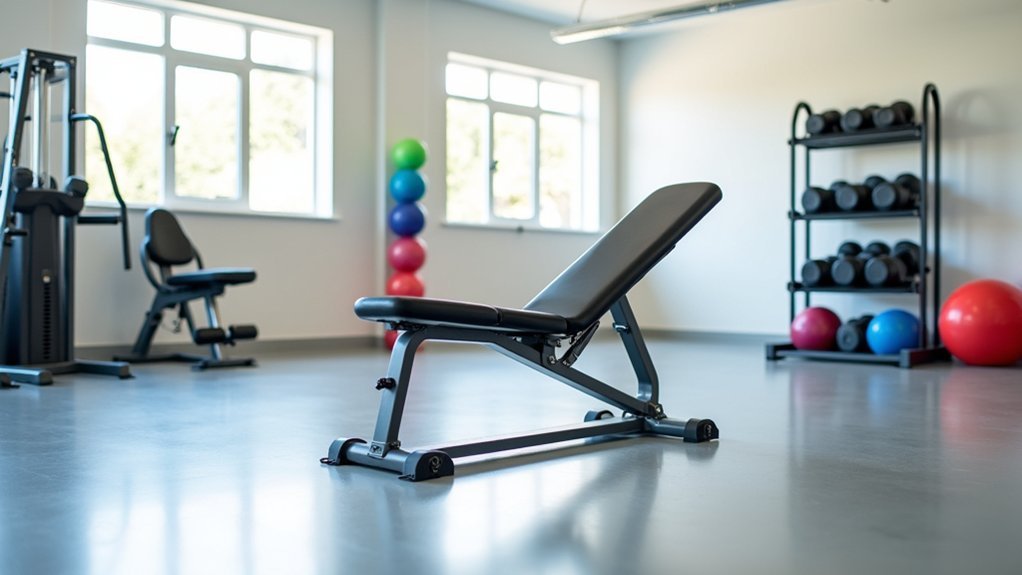
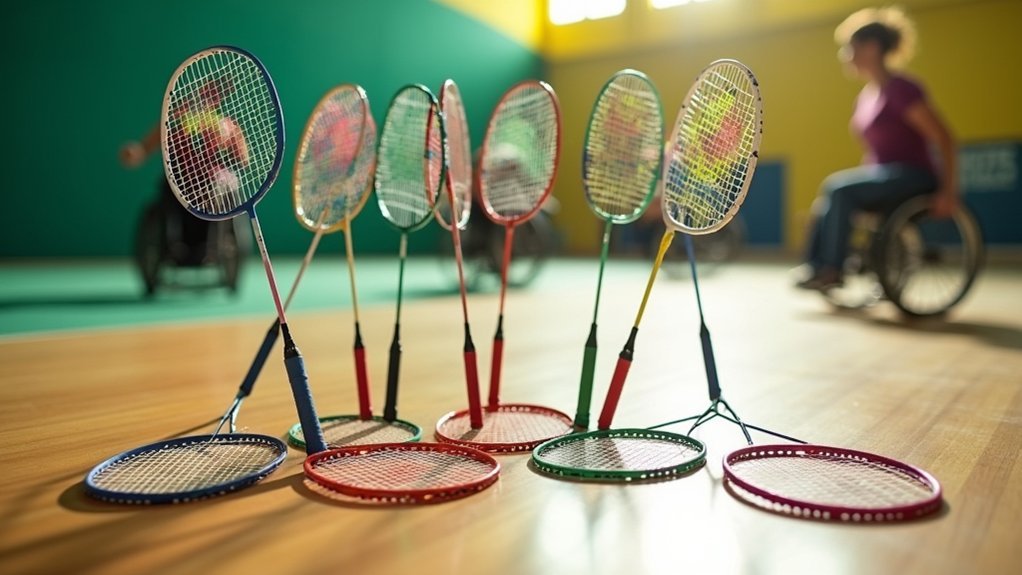
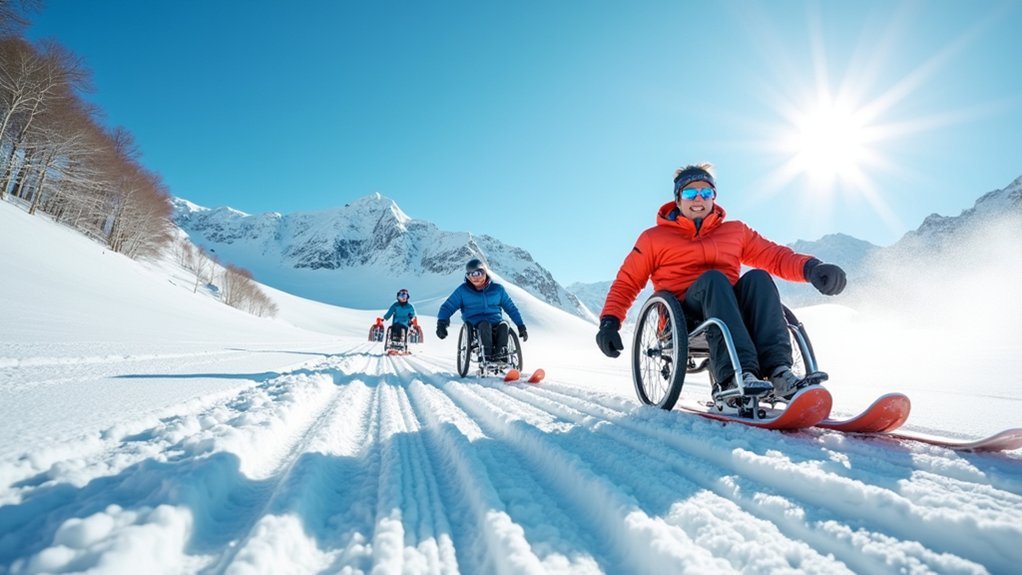
Leave a Reply